OneFootball
Emily Wilson·8 March 2022
IWD EXCLUSIVE: Roord and Ayane on the women’s game now and in the future
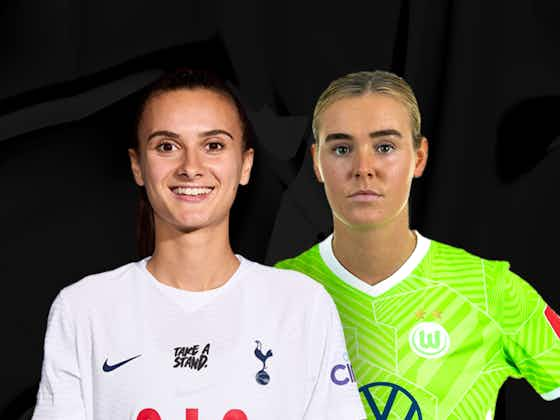
In partnership with
Yahoo sportsOneFootball
Emily Wilson·8 March 2022

Women’s football has been advancing quickly, but there is still a substantial way to go before it is respected on the same level as the men’s game.
To mark International Women’s Day, OneFootball sat down with Jill Roord (Wolfsburg and the Netherlands) and Rosella Ayane (Tottenham and Morocco) to discuss the current landscape of women’s football and the work that needs to be done to keep pushing the game forward.
Before reaching some of the biggest stages the world has to offer, professional footballers so often share the same childhood memory of the game.
“I come from a football family,” Jill Roord explains.
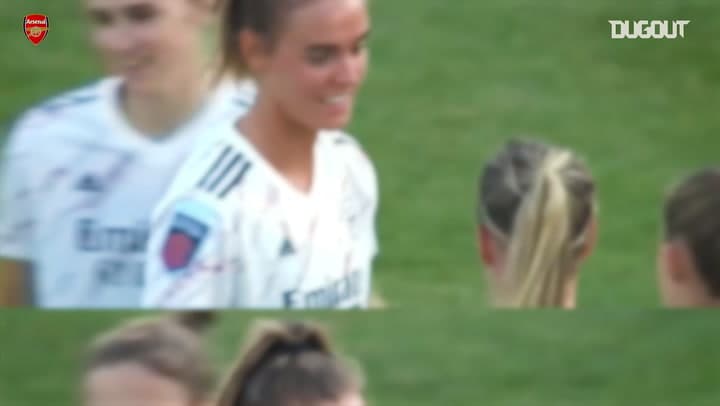
“My dad used to play professionally and I have two brothers. Basically all we ever did when we were young, play football in the garden on streets.
“I just love the game. My family says I always played with a ball, I slept with a ball in my bed. I was always very passionate about playing football.
“I wanted to be the best I can be and the best player in the team.”
But for girls growing up, forging a path into the professional game has never been easy. Rosella Ayane was fortunate to be in the right place at the right time.
“It’s not something that I really thought of when I was little,” she tells us.
“You know, how a lot of boys dream of being a professional footballer when they grow up.
“In Reading there was a local academy. So I was picked up at a young age and from there it’s just sort of fallen hand in hand. I’ve been quite fortunate with that in my area, there’s been quite a strong pathway development for young girls. Then I got picked up by Chelsea where I signed my first professional contract.”
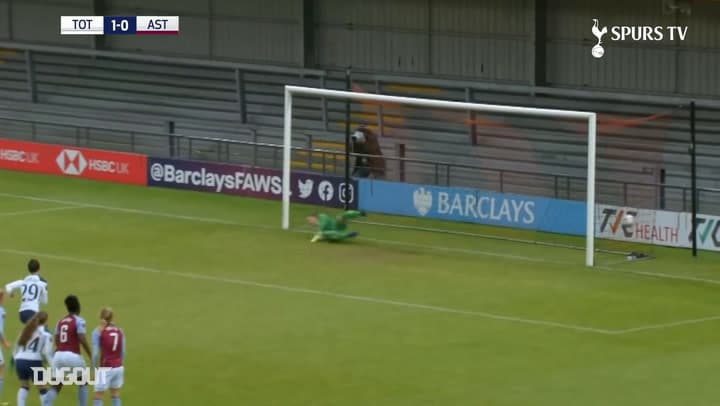
As their careers have developed, Roord and Ayane have played for some of the biggest clubs in England, Germany and the Netherlands between them. Just 24, Roord has already earned 73 international caps and was part of the Netherlands side that won the European Championships in 2017, while Ayane is set to represent Morocco at this summer’s Africa Cup of Nations.
Having reached such heights, the pair know as well as anyone the areas of the women’s game that need the most support.
When asked what they would change first about women’s football, both veered away from the topic of equal pay as their attention turned to the foundations of the game.
“I would change the backing of all women’s teams, so they have the financial backing to be able to focus on football fully as a career,” Ayane says.
“That they have the facilities and the necessary pitches, equipment, medical services that require a professional footballer to be able to thrive across all sorts of leagues in Europe.
“The whole of the Spanish league, the German League, the Dutch League, that every single club will have that backing because then women’s football just grows quicker with those.
“If I could snap my fingers, that’s what I would do.”
Roord bangs the same drum.
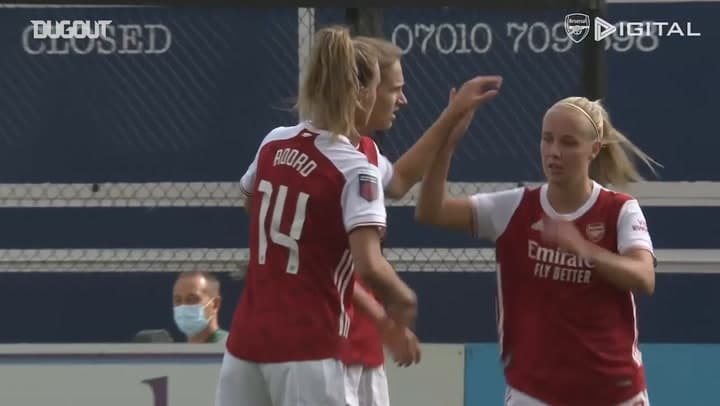
“The first three teams [in the table] have amazing facilities, have the money, [everything is] really good but then all the other clubs, they are struggling so much. That is shit for them and for the league and for women’s football.
“I think that’s the most important thing, that all the clubs in the league get all the facilities they need and the money that they need.
“For example, Barcelona is amazing but if you see the lower teams in the league, they’re really struggling to keep up. And that’s shit for them … I think it’s very important that all the clubs deserve the best facilities and the support to develop as well.”
Admittedly, the importance of pushing for these changes lies in the experience of other female footballers beyond Roord and Ayane. Footballers — active, retired, or emerging now — who may not have had the best experience or support to have a career in the game.
“I hear stories of other female footballers, and their facilities just aren’t good enough and they’re not going to help them to develop as a player,” Ayane explains.
“If a player gets injured, they can’t see a physiotherapist for six months because they have to wait for the NHS (National Health System) or they haven’t got access to the right equipment to help them recover quicker. Simple things that just are completely lacking in the women’s game that I think are just unacceptable, really.
“I know some clubs across Europe maybe have to train in the evening and they’re a professional team. These sort of things would never ever happen in the men’s game. When you even look at League One, League Two football in the men’s game in England. They have good facilities, they have access to medical equipment when necessary, and that automatically without even thinking about it is going to help them become a better player.
“So if the female game had access to these sort of things, it will only grow, it will only get better.”

The dedication and commitment to investment in women’s football is evidently crucial and both Roord and Ayane admit they took that into account when deciding which clubs to join.
“The most important thing is that you play at a club where you can develop yourself and they appreciate women’s football,” Roord says.
“Where you have the facilities the same, for example, as the men, that you can use all the facilities. It’s definitely a very important aspect because you don’t want to sign for club where they don’t [support] women’s football. You can’t develop fully.”
Ayane echoes the sentiment.
“If I’m completely honest, I think all clubs should be backing the women’s side in this day and age.
“It’s just simple things like a better training, pitch, better medical treatment, you know, being able to live without having to have a second job, these types of things.”
Additionally for Roord, ending the ongoing comparisons made between male and female players in football is essential.
“The thing that I want to end, what annoys me always [and] what’s really important, is that you don’t compare women’s football to men’s football too much because it’s a completely different game,” she says.
“Many people, many players have said before. That’s really important because we don’t do it in other sports, either. If you play tennis, we’re not going to compare the male players with the women because it’s just different … Different body, different energy and everything.”

Being advocates for change and endorsing the growth of the women’s game isn’t a task Roord and Ayane have had to spearhead themselves, however. They are following the path of generations of female players who have helped lay the foundations. Carrying that torch and building on that progress motivates the pair.
“It’s a great feeling [to be part of the history],” Ayane says.
“There have been a lot of female footballers who have now retired that paved the way.
“It’s a great feeling to be able to know that you’re making changes.
“Why I continue to play is to help the younger age groups, building a path for them and making their journey a lot easier and pushing for bigger and better things in women’s football.
“It’s about building the women’s game and giving it a bigger platform and better facilities, better financial backing, etcetera, so the younger version of me has an easier ride growing up.”
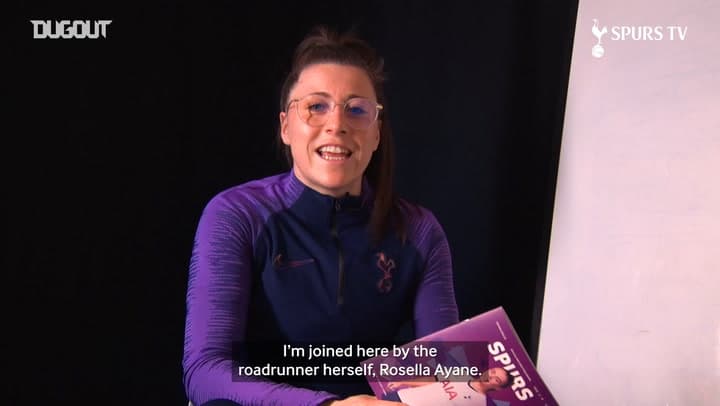
Roord is the same.
“I’m very happy and thankful that I can mean something for this game.
“Obviously, we all can keep inspiring the young kids to come into this game as well. And then make sure it gets better and keeps developing.
“I used to wear jerseys of my idols or big football players. To see people get my jersey now or have a paper with my name on it or whatever, it’s weird, but obviously, I’m very proud. I’m very honoured. Because a few years ago, this didn’t happen … they really appreciate women’s football now.
“[It’s] a very proud moment because we all work really hard and we want to get the best out of it and we want to inspire people. In women’s football, you never know if they really see it or not. The fact that nowadays, people have your jersey, people want something from you is [unimaginable] and makes it worth it.”
So when it comes time to hang up their boots — something Ayane and Roord stress is a long way down the line for them both — how do they hope the women’s football landscape looks?
In a word: progressive.
“I’m hoping when I do eventually retire that the women’s game is just in a much more professional space across all leagues,” Ayane says.
“The Women’s Super League, especially tier one, is in a good place at the moment but I just want to see that continue to develop. I’m hoping all leagues across Europe will have the same sort of professionalism that we’re now getting in the Super League.”
Roord is hoping the next generation enjoy an even bigger platform, one totally free from the weight of concerns.
“I hope they can completely focus on football. I hope they can play in big stadiums, in full stadiums, and that they get all the support from fans. I hope that people see them,” she says.
“I hope that the next generation doesn’t have to worry about anything, basically.”






























































